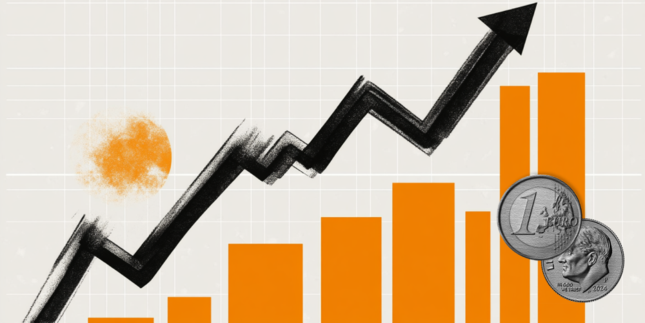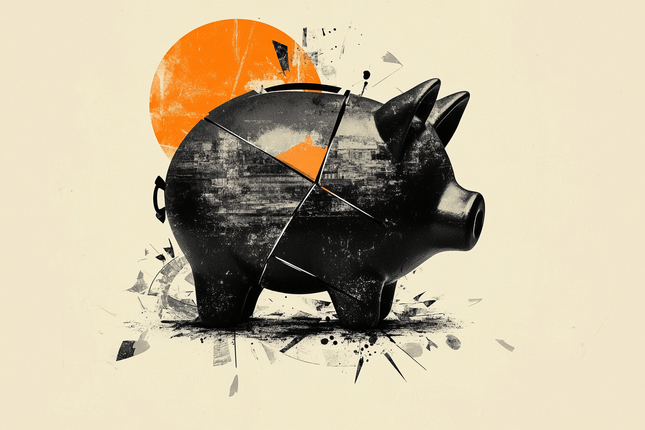After setting a new multi-month high near 1.3300 earlier in the week, GBP/USD trades in a narrow band at around 1.32700 on Friday and remains on track to end the week in positive territory. Markets turn quiet on Friday as trading conditions thin out on Easter Holiday.
GBP/JPY Exchange rate
Editors’ Picks

EUR/USD stabilizes above 1.1350 on Easter Friday
EUR/USD enters a consolidation phase above 1.1350 on Friday as the trading action remains subdued, with major markets remaining closed in observance of the Easter Holiday. On Thursday, the European Central Bank (ECB) announced it cut key rates by 25 bps, as expected.

Gold ends week with impressive gains above $3,300
Gold retreated slightly from the all-time high it touched at $3,357 early Thursday but still gained more than 2% for the week after settling at $3,327. The uncertainty surrounding US-China trade relations caused markets to adopt a cautious stance, boosting safe-haven demand for Gold.

How SEC-Ripple case and ETF prospects could shape XRP’s future
Ripple consolidated above the pivotal $2.00 level while trading at $2.05 at the time of writing on Friday, reflecting neutral sentiment across the crypto market.

Future-proofing portfolios: A playbook for tariff and recession risks
It does seem like we will be talking tariffs for a while. And if tariffs stay — in some shape or form — even after negotiations, we’ll likely be talking about recession too. Higher input costs, persistent inflation, and tighter monetary policy are already weighing on global growth.
Majors
Cryptocurrencies
Signatures
GBP/JPY
The GBP/JPY pair tells the trader how many Japanese Yen (the quote currency) are needed to purchase one British Pound (the base currency). It is known to be a “carry currency cross”, that is a cross which is a vehicle for carry trading (one of today's most popular trading strategies). A carry trade happens when a person sells or borrows an asset with a low-interest rate in order to purchase another asset with a higher interest rate, looking to profit from the underlying interest rate difference. This strategy is heavily used in the foreign exchange market (forex).
HISTORIC HIGHS AND LOWS FOR GBP/JPY
- All-time records: Max: 1014.000 on 01/01/1963 - Min: 116.853 on 19/09/2011
- Last 5 years: Max: 195.843 on 18/06/2015 - Min: 124.78 on 26/09/2016
* Data as of February 2023
ASSETS THAT INFLUENCE GBP/JPY THE MOST
The GBP/JPY pair can also be impacted by:
- Currencies: USD and EUR. This group also includes the following currency pairs: EUR/USD, GBP/USD, USD/JPY, AUD/USD, USD/CHF, NZD/USD, USD/CAD and EUR/JPY
- Commodities: Oil.
- Bonds: Gilt (debt securities issued by the Bank of England), GJGB10 (Japan Generic Govt 10Y Yield) and T-Note (Treasury Note, a marketable U.S. government debt security).
- Indices: FTSE 100 (share index of the 100 companies listed on the London Stock Exchange with the highest market capitalization), Nikkei 225 (stock market index for the Tokyo Stock Exchange), Dow Jones (DJIA, Dow Jones Industrial Average, an index that shows how 30 large publicly owned companies based in the United States have traded during a standard trading session in the stock market).
ORGANIZATIONS, PEOPLE AND ECONOMIC DATA THAT INFLUENCE GBP/JPY
The organizations and people that affect the most the moves of the GBP/JPY pair are:
- Bank of England (BoE), known to be one of the most effective central banks in the world. It acts as the government's bank and the lender of last resort. It issues currency and, most importantly, it oversees monetary policy (including interest rates). Andrew Bailey became the new Governor of the Bank of England on March 16th, 2020. Her Majesty the Queen has approved the appointment. He is widely and deeply respected for his leadership managing the financial crisis, developing the new regulatory frameworks, and supporting financial innovation to better serve UK households and businesses.
- Bank of Japan (BoJ) that issues statements and decides on the interest rates of the country. Its Governor is currently Kazuo Ueda. The BoJ has been applying very low interest rates for many years and even introduced a negative interest rate in January 2016, in an attempt lift consumer prices, which have been sliding for most of the past 20 years. Falling consumer prices is a concern for the country since they hurt corporate revenues and tend to stop spendings. The Japanese Consumer Price Index (CPI) is a key indicator closely monitored by traders of all JPY-related currency crosses.
- UK Government and its Prime Minister, Rishi Sunak who took office in October 2022, a day after becoming leader of the Conservative Party.
- Japanese Government and its Prime Minister Shigeru Ishiba, who replaced Fumio Kishida in October 2024..
- UK GDP (Gross Domestic Product), the total market value of all final goods and services produced in a country. It is a gross measure of market activity because it indicates the pace at which a country's economy is growing or decreasing. Generally speaking, a high reading or a better than expected number is seen as positive for the GBP, while a low reading is negative.
